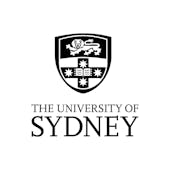I am generally interested in evolutionary questions, and social insects are an excellent model system. Currently my research interests can be grouped into four main themes:
1. Conflict and cooperation
2. Evolution of the dance language in the genus Apis
3. Decision-making in decentralised systems
4. Intergenomic conflict
I have extensive experience in the fields of behavioural ecology, evolutionary and molecular biology. One of my current research directions is the study of conflict at the organismal level, focusing on insect societies and the acellular slime mould Physarum polycephalum.
The hallmarks of my current research are (1) the innovative use of mathematical and computer simulation models in conjunction with rigorous laboratory and field experiments to address evolutionary and behavioural questions; (2) the use of genetic tools to address behavioural and evolutionary questions.
Some of my recent contributions to the study of conflict within societies using genetic tools have revealed that workers of the Cape honeybee (Apis mellifera capensis) are reincarnated as queens: the majority of new queens were shown to be clonal offspring of workers and of these workers most were social parasites.
The fact that offspring of social parasites are successful in taking over a colony at the detriment of the host, raises interesting questions: how do such conflicts evolve and what mechanisms are there to prevent them?
Over the years I have increased my experimental expertise by incorporating new model organisms in my work. The latest addition has been the acellular slime mould Physarum polycephalum This strange creature allows us to manipulate the inheritance of mitochondria, which means that we can create an organism in which the nucleus and mitochondria are not related.
We can now study what the consequences are of mixing mitochondria and nuclei from different parents and so shed light on the question why organisms have only one mother and one father.
Experience
-
2013–2015Professor and ARC Future Fellow, The University of Sydney
-
2003–2012ARC QEII Fellow, The University of Sydney
- Sydney, Australia
- Website
- Article Feed
- ORCID
- Joined


